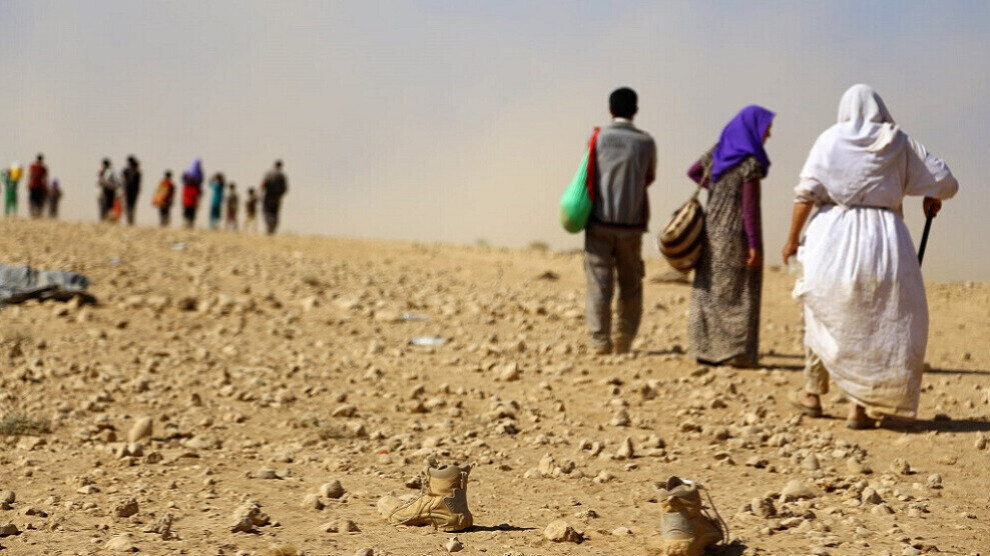Lower Saxony minister wants to end deportation of Yazidis
Lower Saxony's Interior Minister Daniela Behrens (SPD) called for a broad stop to deportations of members of the Yazidi minority to Iraq.
Lower Saxony's Interior Minister Daniela Behrens (SPD) called for a broad stop to deportations of members of the Yazidi minority to Iraq.

Lower Saxony's Interior Minister Daniela Behrens (SPD) called for a broad stop to deportations of Yazidis from Germany to Iraq. She told "Neue Osnabrücker Zeitung" that she will work for a nationwide uniform solution at the Interior Ministers' Conference in Potsdam, which will begin tomorrow, Wednesday.
At the same time, Behrens criticized the Federal Office for Migration and Refugees (BAMF), "because although the Bundestag has recognized ISIS crimes against the Yazidis as genocide, it continues to regularly reject asylum applications from Yazidi people from Iraq as unfounded."
Beherns said that it is "highly unsatisfactory" that the federal states forced to find their own regulations to prevent deportations.
A few days ago, Behrens imposed a corresponding deportation ban for women and minors who belong to the Yazidi religious community in Lower Saxony. The regulation applies to the entire so-called nuclear family of those affected, and therefore usually also to fathers. However, criminals and people with extremist ties as well as those who stubbornly refuse to help clarify their identity are exempt from this.
Behrens now wants to promote this approach among her 15 other departmental colleagues. She will also campaign for the BAMF to "appropriately acknowledge the considerable dangers for Yazidis in Iraq" when accepting asylum applications. Women and girls of the Yazidi faith in particular are still at risk of terrible acts of violence, forced prostitution and abduction in Iraq, said the SPD politician.
74 genocides in Yazidi history
The Islamic State overran large parts of Iraq and Syria in 2014 and established a reign of terror. The jihadist militia proclaimed a "caliphate" across national borders. On 3 August 2014, ISIS attacked the main Yazidi settlement area of Shengal in northern Iraq with the aim of wiping out the Kurdish-speaking religious community, which had been persecuted for centuries as "devil worshippers." Through systematic massacres, rape, torture, expulsion, enslavement of girls and women, and the forced recruitment of boys as child soldiers, the Yazidis experienced what they call the "Ferman" - the 74th genocide in their history.
According to United Nations estimates, at least 10,000 people fell victim to the massacres in Shengal. More than 400,000 people were driven from their homes, and over 7,000 women and children were abducted. To date, around 2,700 of those kidnapped are still in the power of their captors, most of them women and children. The women and young girls are still systematically raped and kept and sold as slaves. Therefore, this genocide in its form also represents a femicide.
In January 2023, the Bundestag recognized the systematic persecution and murder of Yazidis in northern Iraq by ISIS as genocide.